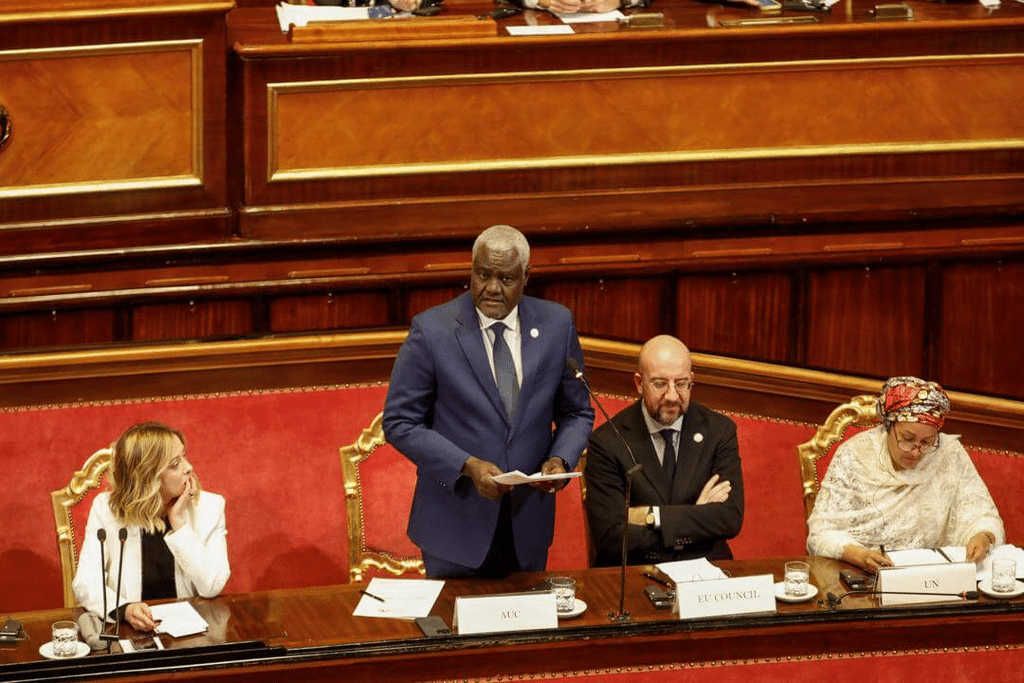One of the new areas of cooperation between Italy and Africa is green hydrogen. The African continent has great potential for the development of this nascent sector, even if it is already being called into question, along with the exploitation of other natural resources in Africa, notably oil. Italy will be playing a role in the coming years.
At the recently-concluded Italy-Africa summit in Rome, Tunisian President Kaïs Saïed called for the creation of a “common growth bridge” in several sectors, including renewable energies and green hydrogen. This nascent sector is included in the growth strategy of the Tunisian Ministry of Industry, Mines and Energy, which is forecasting an annual capacity of 8.3 million tonnes by 2050. For the time being, the North African country is struggling to ensure its energy transition and to do without gas, which is used to produce 97% of its electricity.
Italy could play an important role in this strategy of integrating the green hydrogen sector, notably through its 5.5 billion euro investment plan announced at the Rome summit. This commitment comes at a time when Italy is planning to lay a pipeline to transport green hydrogen produced in Morocco across the Mediterranean to the European market.
The “green corridor
This proposal by Italian MP Debora Serracchiani was approved by Rome as part of its Mattei Plan, named after the founder of hydrocarbon company Eni, with the aim of redefining the partnership between Italy and Africa, far from the “paternalistic” and “predatory” approach adopted to date by certain powers on the continent. This “green corridor”, as the Italian government calls it, will transport hydrogen from the Moroccan port of Tangiers to the Italian port of Trieste, from where the energy will be distributed to Central and Eastern Europe via the Transalpine pipeline.
“We are putting into practice the cooperation agreement recently signed between the Eastern Adriatic Port Authority and the Tangier Port Authority (TangerMed),” says Debora Serracchiani. But this is a long-term collaboration, since hydrogen will only be produced on a large scale by 2030 or 2035, according to energy specialists.
Eni’s diversification strategy
For the time being, Morocco is trying to diversify its partnerships for the development of green hydrogen, notably with Portugal and Germany, but also with several multinationals in the energy sector, such as France’s Total Eren, which wants to invest 9 billion euros by 2030.
Italian hydrocarbon giant Eni has signed an agreement with the state-owned Egyptian Electricity Holding Company (EEHC) and Egyptian Natural Gas Holding Company (Egas). The agreement covers the study of joint projects to produce green hydrogen, using electricity generated from renewable sources, and blue hydrogen, by storing CO2 in depleted natural gas fields.
The Group has also teamed up with Saudi energy company Acwa Power for the research and development (R&D) of this new process. The Saudi company is stepping up agreements in the field of green hydrogen and its derivatives in Africa, mainly in Egypt and South Africa, the two African countries that are showing a certain dynamism in the development and production of renewable energies.


